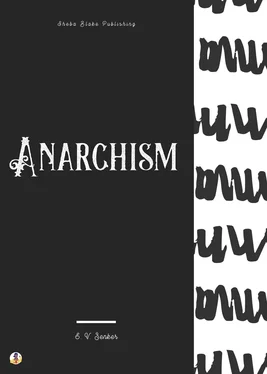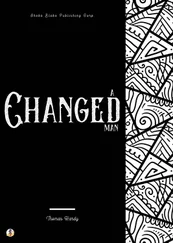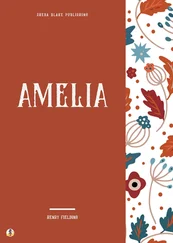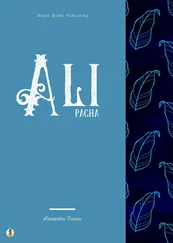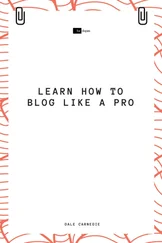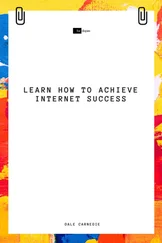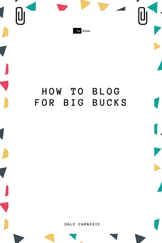Sheba Blake - Anarchism
Здесь есть возможность читать онлайн «Sheba Blake - Anarchism» — ознакомительный отрывок электронной книги совершенно бесплатно, а после прочтения отрывка купить полную версию. В некоторых случаях можно слушать аудио, скачать через торрент в формате fb2 и присутствует краткое содержание. Жанр: unrecognised, на английском языке. Описание произведения, (предисловие) а так же отзывы посетителей доступны на портале библиотеки ЛибКат.
- Название:Anarchism
- Автор:
- Жанр:
- Год:неизвестен
- ISBN:нет данных
- Рейтинг книги:4 / 5. Голосов: 1
-
Избранное:Добавить в избранное
- Отзывы:
-
Ваша оценка:
- 80
- 1
- 2
- 3
- 4
- 5
Anarchism: краткое содержание, описание и аннотация
Предлагаем к чтению аннотацию, описание, краткое содержание или предисловие (зависит от того, что написал сам автор книги «Anarchism»). Если вы не нашли необходимую информацию о книге — напишите в комментариях, мы постараемся отыскать её.
Anarchism — читать онлайн ознакомительный отрывок
Ниже представлен текст книги, разбитый по страницам. Система сохранения места последней прочитанной страницы, позволяет с удобством читать онлайн бесплатно книгу «Anarchism», без необходимости каждый раз заново искать на чём Вы остановились. Поставьте закладку, и сможете в любой момент перейти на страницу, на которой закончили чтение.
Интервал:
Закладка:
* * *
Feuerbach described the development which he had passed through as a thinker in the words: “God was my first thought, Reason my second, Man my third and last.” Not only Feuerbach, but all modern philosophy, has gone through these stages; and Feuerbach is only different from other philosophers, in having himself assisted men to reach the third and final stage. The epoch of philosophy that was made illustrious by the brilliant trinity of Descartes, Spinoza, and Leibnitz, however far it may have departed or emancipated itself from the traditions of religion, not only never deposed the idea of God, but actually for the first time made the conception of the Deity the starting-point of all Thought and Existence. The philosophy which abolished this, whether we consider Locke and Hume the realists, or Kant and Hegel the idealists, is philosophy of intellect; absolute reason has taken the place of an absolute God, criticism and dialectics the place of ontology and theocracy. But in philosophy we find the very opposite of the mythological legend, for in it Chronos instead of devouring his children is devoured by them. The critical school turned against its masters, who were already sinking into speculative theology again, quite forgetting that its great leader had introduced a new epoch with a struggle against ontology; and losing themselves in the heights of non-existence, just as if they had never taken their start from the thesis, that no created mind can comprehend the nature of the Being that is behind all phenomena. From such heights a descent had to be made to our earth; instead of immortal individuals, as conceived by Fichte, Hegel, and Schelling, the school of Feuerbach, Strauss, and Bauer postulated “human beings, sound in mind and body, for whom health is of more importance than immortality.” Concentration upon this life took the place of vague trancendentalism, and anthropology the place of theology, ontology, and cosmology. Idealism became bankrupt; God was regarded no longer as the creator of man, but man as the creator of God. Humanity now took the place of the Godhead.
The new principle was now a universal or absolute one; but, as with Hegel, universal or absolute only in words, for to sense it is extremely real, just as Art in a certain sense is more real than the individual. It was the “generic conception of humanity, not something impersonal and universal but forming persons, inasmuch as only in persons have we reality.” (D. F. Strauss.)
If philosophic criticism were to go still farther than this, there remained nothing more for it than to destroy this generalisation, and instead of Humanity to make the individual, the person, the centre of thought. A strong individualistic and subjective feature, peculiar to the Kantian and post-Kantian philosophy, favoured such a process. Although in the case of Fichte, Hegel, and Schelling this feature had never outstepped the limits of the purely comprehensible, yet such a trait makes philosophy infer a similarly strongly developed feature of individualism in the people, especially as at that time it was so closely connected with popular life. Moreover, at that period there was a great desire (as we see in Fichte and his influence on the nation) to translate philosophy at once into action; and so it was not remarkable that a thinker regardless of consequences should introduce the idea of individualism into the field of action, and regard this also as suitable for “concentration of thought upon this present life.” Herewith began a new epoch; just as formerly human thought had proceeded from the individual up to the universal, so now it descended from the highest generalisation down again to the individual; to the process of getting free from self followed the regaining of self.
Here was the point at which an Anarchist philosophy could intervene, and, as a matter of fact did intervene, in Stirner.
* * *
In another direction also, and about the same time, the critical philosophy had reached a point beyond which it could not go without attacking not only the changing forms, but also the very foundations of all organisations of society which were then possible. However far the Aufklärer, the Encyclopædists, the heedless fighters in the political revolution, and the leading personages in the spiritual revolution, had gone in their unsparing criticism of all institutions and relationships of life, they had not as yet, except in a few isolated cases, attacked Religion, the State, and Property, as such in the abstract.
However manifold and transitory their various forms might be, these three things themselves still seemed to be the incontrovertible and necessary conditions of spiritual, political, and social life, merely the different concrete formulæ for the one absolute idea which could not be banished from the thought of that age.
But if we approach these three fundamental ideas with the probe of scientific criticism, and resolutely tear away the halo of the absolute, it does not on that account seem necessary for us to declare that they are valueless or even harmful in life. We read Strauss’s Life of Jesus , and put it down perhaps with the conviction that the usually recognised sources of inspired information as to revealed religion and the divine mission of Christianity are an unskilful compilation of purely apocryphal documents; but are we on that account to deny the importance of Judaism and Christianity in social progress and ethics? Or again, I may read E. B. Tyler’s Primitive Culture and see the ideas of the soul and God arise from purely natural and (for the most part) physiological origins, just as we can trace the development of the skilful hand of Raphael or Liszt from the fore-limbs of an ape; but am I from that to conclude that the idea of religion is harmful to society? It is just the same with the ideas of the State and Property. Modern science has shown us beyond dispute the purely historical origin of both these forms of social life; and both are, at least as we find them to-day, comparatively recent features of human society. This, of course, settles the question as to the State and Property being inviolable, or being necessary features of human society from everlasting to everlasting; but the further question as to how far these forms are advantages and relatively necessary for society in general, or for a certain society, has nothing to do with the above, and cannot be answered by the help of a simple logical formula. But though this fact seems so clear to us, it is even to-day not by any means clear to a great portion of mankind. And how much less clear it must have been to thinkers at the beginning of this century when thought was still firmly moulded upon the conception of the Absolute. To them there could only be either absolute Being or absolute Not-Being; and as soon as ever critical philosophy destroyed the idea of the “sacredness” of the institutions referred to (Property and the State), it was almost unavoidable that it should declare them to be “unholy,” i. e. , radically bad and harmful. The logic which underlies this process of thought is similar to that which concludes that if a thing is not white it must be black. But it cannot be denied that just at this time—during the celebrated dix ans after the Revolution of July—many circumstances seemed positively to favour such an inference.
Not only were economic conditions unsatisfactory (though pauperism alone will never produce Anarchism), but even hope and faith had gone. Idealism was bankrupt, not only in the political but also in the economic world. Full of the noblest animation, and with the most joyous confidence, the French nation had entered upon the great Revolution, and all Europe had looked full of hope towards France, whence they expected to see the end of all tyranny and—since such things at that time were not well understood—the end of all misery. We may be spared the detailed description of the transition by which this hope and these childish expectations, this Millennialism, were bitterly disillusioned, and how the excitement of 1789 to 1791 ended in a great wail of woe; and that too not only in France, where absolute monarchy post tot discrimina verum had merely changed into an absolute empire, but also in Germany, whose princes hastened to recall the concessions made under the pressure of the Revolution. The monarchs of Europe then celebrated an orgie of promise-breaking, from which even to-day the simple mind of the people revolts with deep disgust. It need only be remembered how in the Napoleonic wars of Germany noble princes exploited the flaming enthusiasm and the naïve confidence of their people for their own dynastic purposes, and then, after the downfall of the Corsican, drove them back again through the old Caudine yoke. If, after such unfortunate experiences, the people, and especially the insatiate elements amongst them, had retained any remains of confidence in help from above, it must have perished in the sea of disgust and bitterness at the Revolution of July.
Читать дальшеИнтервал:
Закладка:
Похожие книги на «Anarchism»
Представляем Вашему вниманию похожие книги на «Anarchism» списком для выбора. Мы отобрали схожую по названию и смыслу литературу в надежде предоставить читателям больше вариантов отыскать новые, интересные, ещё непрочитанные произведения.
Обсуждение, отзывы о книге «Anarchism» и просто собственные мнения читателей. Оставьте ваши комментарии, напишите, что Вы думаете о произведении, его смысле или главных героях. Укажите что конкретно понравилось, а что нет, и почему Вы так считаете.
